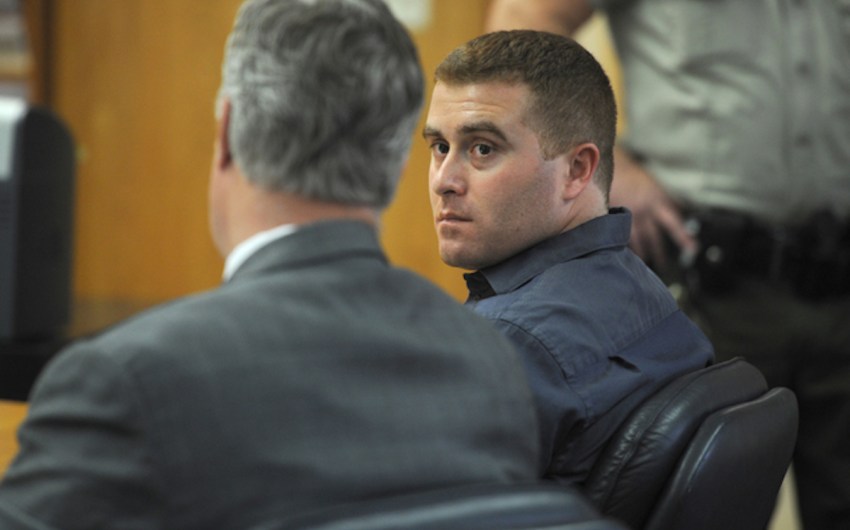Santa Barbara Man’s Apple Watch Alerts Saved His Life With Early Detection
The Value of Wearable Tech Pays Off Big Time for Peter Moore

Peter Moore is no stranger to the power of technology. Over the past few decades, Moore has made a name for himself as a technology executive, working for such companies as Microsoft, SEGA, and EA Sports.
A soccer aficionado, Moore recently moved to Montecito from Liverpool, founding Santa Barbara Sky FC, a professional soccer team that is scheduled to commence play at UCSB’s Harder Stadium in March 2025.
Despite his boundless experience with tech and, even more specifically, tech related to fitness and sports, Moore was recently reminded of the profound and literally life saving capabilities of wearable tech.

Friday, July 12, started as a day like any other for Moore. While he felt slightly lightheaded, he hadn’t noticed anything severe enough to warrant significant concern. Chuckling in retrospect, Moore reflected on how he drove to the Santa Barbara Airport to pick up his daughter and, on the way, grabbed a Starbucks latte as a remedy for his dizziness.
“I felt just a little faint. Nothing too serious. And, being a typical man, I thought a Starbucks nonfat blondie would sort that out,” Moore said.
While sitting in the parking lot at the Santa Barbara Airport, Moore started to receive a barrage of pings from his Apple Watch.
“It said ‘low heart rate.’ And it kept coming at me ‘low heart rate.’ At the lowest point, my heart rate had gone down to 32,” explained Moore.
This steady drop was a jarring deviation from his typical numbers which had, up until that point, been completely normal. Moore sent screenshots to his wife, Debbie, who immediately came to take him to Santa Barbara Cottage Hospital.
Moore was abruptly catapulted into the frenzied pandemonium of Santa Barbara Cottage Hospital’s emergency room.
“I was descended upon by a crash team and immediately stuck with an IV and EKG sensors. They were ready with a defibrillator. So I was completely surrounded by a team that felt that I was in trouble. I was hooked up to a heart rate monitor and my BPM had gone down to 24,” he said.
Almost immediately, Moore’s doctors informed him that he would need a pacemaker.
“I mean, there was no lead into this. This was straight away. I smile now, but I’d gone from having Starbucks maybe 30 minutes earlier and now I needed a pacemaker,” he recalled.
Moore was diagnosed with a complete heart block, a medical condition that occurs when there is faulty electrical communication between the four chambers of the heart. Heart block is typically not accompanied by concrete symptoms but, rather, presents with varying and indeterminate clues. It’s difficult to identify causally, yet can be fatal if not promptly treated.

Thankfully, Moore was treated with a pacemaker that same day and has since recovered swiftly. Still, Moore is quick to point out some key takeaways from this event.
He has expressed gratitude for devices like the Apple Watch, which corroborate serious health problems with data. Moore remarked that human beings tend to be stubborn when it comes to health and that we don’t listen to our body’s cues as intently as we should. His health scare is a clear testament to this idea; without his Apple Watch insisting that he get to the hospital, Moore likely would have continued to ignore his systems, which might have culminated in a far more catastrophic outcome.
“We don’t react to things like we should. If it’s not on your watch, on your phone, it doesn’t exist. It only really kicked in when the Apple Watch was pinging me, basically saying ‘get yourself to the hospital right now,’” Moore said.
He also urged people to be receptive to the data that their health trackers provide.
“We have so much data that is easily accessible, that can inform us of what’s going on in our body. And so the message, I think, is listen to the data.”
Moore’s story emphasizes not only how far digital health monitoring has advanced in recent years but, perhaps more importantly, the crucial role that these innovations play in safeguarding our wellbeing. Ultimately, Moore’s experience with an Apple Watch demonstrates how a small, unassuming device on our wrist can become a lifeline and proves that, sometimes, the most unexpected sources can make the biggest difference.
Premier Events
Sat, Dec 21
11:00 AM
Santa Barbara
Mosaic Makers Market – Holiday Weekend Market
Sun, Dec 22
11:00 AM
Santa Barbara
Mosaic Makers Market – Holiday Market Finale
Wed, Dec 25
6:00 PM
Santa Barbara
FREE Contra Dance X-mas Day💃Corwin & Grace band6-9
Sat, Dec 21
11:00 AM
Santa Barbara
Mosaic Makers Market – Holiday Weekend Market
Sat, Dec 21
12:00 PM
Santa Barbara
Gift Wrapping with Life Chronicles
Sat, Dec 21
2:00 PM
Santa Barbara
State Street Ballet’s 30th Anniversary Production of ‘The Nutcracker’
Sat, Dec 21
4:00 PM
Santa Barbara
Wine + Painting Workshop
Sat, Dec 21
5:00 PM
Santa Barbara
The Rhythm Industrial Complex: Live at Fox Wine Co
Sat, Dec 21
5:00 PM
Santa Barbara
LET IT GLOW Winter Solstice on State St.
Sat, Dec 21
5:15 PM
Santa Barbara
The Longest Night Memorial
Sat, Dec 21
5:30 PM
Santa Barbara
First United Methodist Church Living Nativity
Sat, Dec 21
6:00 PM
Santa Barbara
Captain Fatty’s Ugly Xmas Sweater Party
Sat, Dec 21
6:30 PM
Santa Barbara
Ugly Sweater Singles 30s and 40s Party!
Sat, Dec 21 11:00 AM
Santa Barbara
Mosaic Makers Market – Holiday Weekend Market
Sun, Dec 22 11:00 AM
Santa Barbara
Mosaic Makers Market – Holiday Market Finale
Wed, Dec 25 6:00 PM
Santa Barbara
FREE Contra Dance X-mas Day💃Corwin & Grace band6-9
Sat, Dec 21 11:00 AM
Santa Barbara
Mosaic Makers Market – Holiday Weekend Market
Sat, Dec 21 12:00 PM
Santa Barbara
Gift Wrapping with Life Chronicles
Sat, Dec 21 2:00 PM
Santa Barbara
State Street Ballet’s 30th Anniversary Production of ‘The Nutcracker’
Sat, Dec 21 4:00 PM
Santa Barbara
Wine + Painting Workshop
Sat, Dec 21 5:00 PM
Santa Barbara
The Rhythm Industrial Complex: Live at Fox Wine Co
Sat, Dec 21 5:00 PM
Santa Barbara
LET IT GLOW Winter Solstice on State St.
Sat, Dec 21 5:15 PM
Santa Barbara
The Longest Night Memorial
Sat, Dec 21 5:30 PM
Santa Barbara
First United Methodist Church Living Nativity
Sat, Dec 21 6:00 PM
Santa Barbara
Captain Fatty’s Ugly Xmas Sweater Party
Sat, Dec 21 6:30 PM
Santa Barbara


























You must be logged in to post a comment.